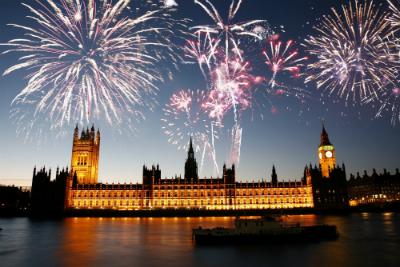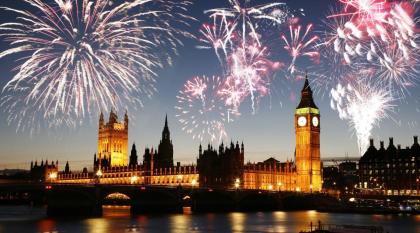What is Bonfire Night in the UK?
Walk around London the last week of October or first week of November, and you might get startled by the occasional loud bang. This is of course the annual celebration of Bonfire Night, also known as Guy Fawkes Night. The event officially takes place on the 5th of November, but individuals have their own celebrations a week or two on either side.
Guy Fawkes Night itself is the 5th of November to commemorate the failure of the Gun Powder Plot of 1605. Robert Catesby led a group of plotters hoping to blow up the Houses of Parliament and assassinate King James I, who was in the building for the State Opening of the Parliament. This is a grand ceremony in which the monarch speaks to the British Parliament to open a session of the legislature.
Guy Fawkes Night takes its name from Guy Fawkes, one of the plotters, whose job was to guard the gunpowder stored below Parliament. He was discovered and the plot was averted. Although he is falsely remembered as one of the key conspirators, he in fact played a somewhat minor role and is remembered primarily because he was the one set in charge of the actual explosives.
Since the failure of the assassination attempt, Guy Fawkes Night has become an annual celebration with bonfires and fireworks. Local governments and institutions will set them off, as well as private individuals. It’s a little ironic that we celebrate the failure of an explosion with intentional explosions across the country! Some families will get together to celebrate and light sparklers or roast marshmallows over a fire.
In the original celebrations, people would burn effigies of Guy Fawkes or other unpopular figures. An effigy is a likeness made of wood or old clothing, newspaper, and masks, and these effigies soon began to be called "guys" after Guy Fawkes. In the past, children would prepare guys weeks before the day, and go door to door trying to sell them, asking for a "penny for the Guy."
These likenesses were not very flattering, and it soon become a common insult to call a poorly dressed or ugly man a “guy." Gradually in the early 20th century, “guy” became a common word to describe any man, particularly in the United States where the cultural context was lost. Nowadays, the American usage has caught on, and “guy” is a very common way to address any man, and even groups of people with both men and women in them.
So, guys, what do you think? How will you celebrate Guy Fawkes Night? Let us know in the comments, and, while you’re at it, why not look into studying English in the UK to experience your own Bonfire Night?
Find more information about Guy Fawkes Night here.

